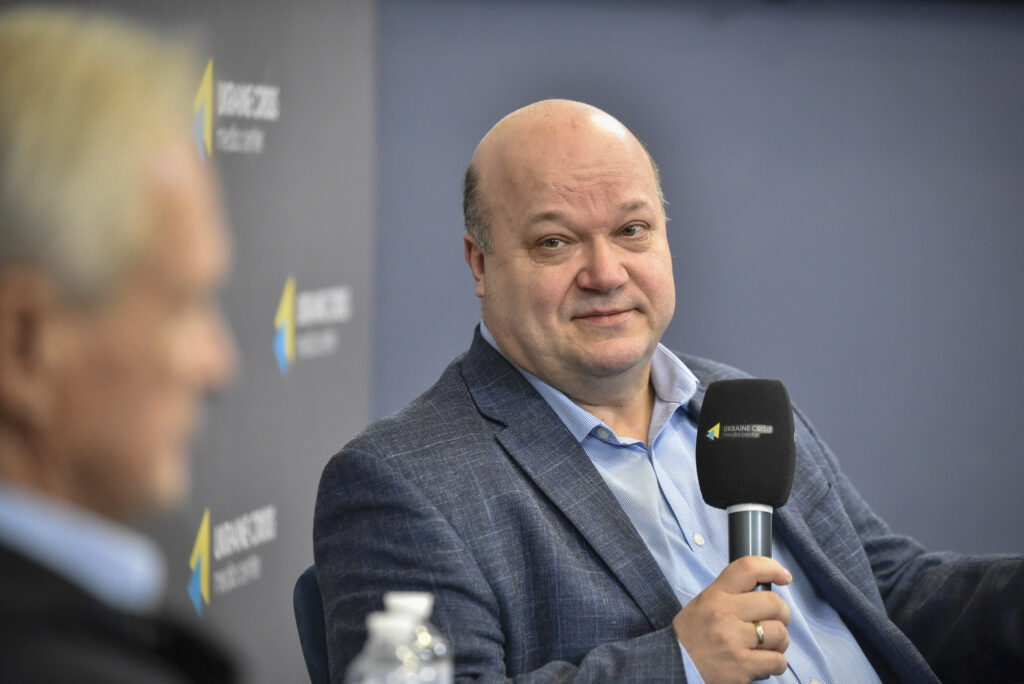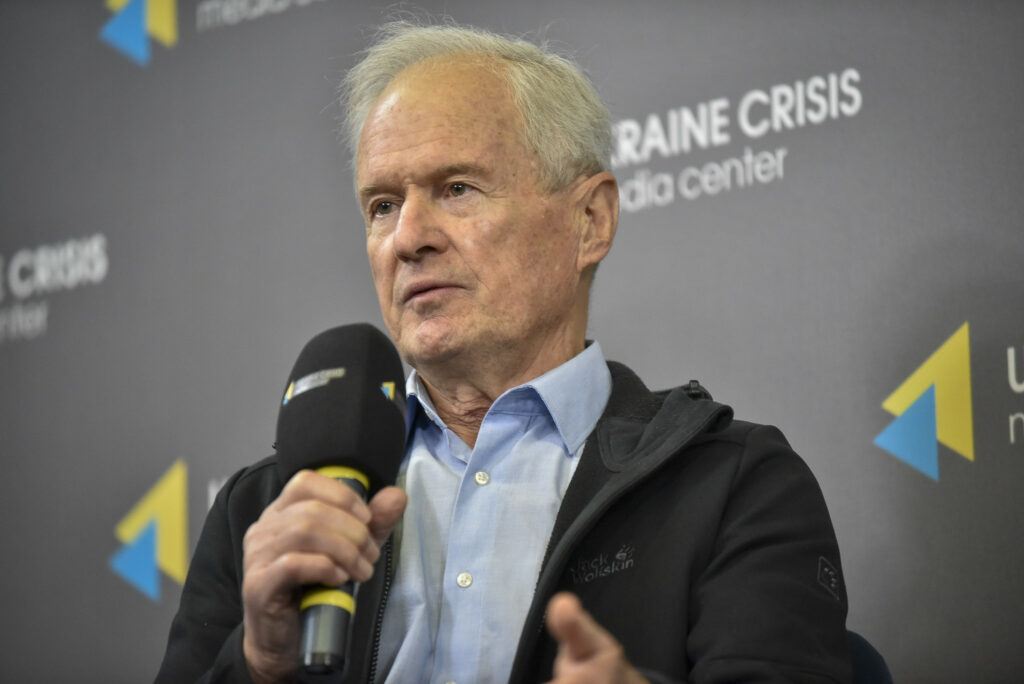After the USSR collapsed, Ukraine inherited the world’s third nuclear arsenal, equal to that of France, the UK, and China combined. What happened next was described in detail by the former Minister of Environmental Protection and Nuclear Safety Yuriy Kostenko in his book “Ukraine’s Nuclear Disarmament: A History”.
Valeriy Chaly, Chairman of the Board of Ukraine Crisis Media Center, Ambassador Extraordinary and Plenipotentiary, recommends this book to all those who in one way or another are responsible for decision-making at the state level in Ukraine. That is why he invited the author to a conversation in the format “GEOPOLITICAL DIALOGUES with Valeriy Chaly”.
“In my opinion, the need to familiarize ourselves with this book, this work at the level of management, at the level of civil service, is underestimated. I believe that this book must be a must-have for those who deal directly with issues related to nuclear weapons and disarmament, and those who prepare speeches of the President of Ukraine. Those who advise the President should definitely have it. All Ukrainian ambassadors abroad. It is very important for them to understand that our actions and our initiatives must be based on a preliminary assessment. The lessons of history give us the opportunity to evaluate both our achievements and our mistakes,” the diplomat said.
To set the record straight from the outset, he asked Yuriy Kostenko to answer the question whether Ukraine is capable of producing nuclear weapons in any form and whether there is a need for it?
The guest believes that it is impossible in today’s conditions.
“According to international law and international documents ratified by Ukraine, primarily the Treaty on the Non-Proliferation of Nuclear Weapons, Ukraine is a non-nuclear weapon state. So, as soon as Ukraine starts moving towards nuclear status, it will immediately face international sanctions. Including from our partners, who are providing Ukraine with weapons, economic and financial support,” said Yuriy Kostenko.
The second reason is that Ukraine’s current financial, scientific and technological potential does not allow it to return to nuclear status. Moreover, the entire territory of the country is accessible to Russian missiles, and therefore, in order to try to make a nuclear explosive device, and then the corresponding carriers, these enterprises must be located somewhere.
“Given the madness and paranoia of Putin, who has repeatedly threatened Ukraine with using tactical nuclear weapons, we can assume that such weapons may even be used against such a complex. And from the international community’s point of view, I don’t think there will be much resistance to this,” the politician said.
What will Ukraine do then? Why do we not have the right to a nuclear umbrella, when the nuclear club members are building up their muscles, and other countries are increasingly eager to join it?
Valeriy Chaly says that Russia has actually withdrawn its commitment not to attack Ukraine with nuclear weapons.
“They have recently stated in their doctrine that if it is a war with non-nuclear Ukraine, but with any support from the nuclear US or the UK or France, they can use nuclear weapons. It does not fit into any international systems. Kazakhstan and Belarus have received a nuclear umbrella from Moscow. Taiwan has promises so far, but South Korea has actually received a nuclear umbrella from the US. All NATO countries are also under the US nuclear umbrella, as is Japan. But Ukraine ended up not only without nuclear weapons, but without an umbrella at all. Do we not have the right to receive this nuclear protection, or should we ask our partners to revise mutual obligations?” he asked the interlocutor.
Recalling the past, Yuriy Kostenko noted that Ukraine had failed to take full advantage of the Budapest Memorandum. He also believes that the Americans were ready to open the door to NATO for Ukraine, however, due to our mistakes, this historic chance was lost. Today, we must look for new ways, and given the sensitivity of the issue, keep this process out of the public eye.
“These kinds of things are done by countries not on the podiums and at press conferences, but in the deepest secrecy from potential enemies of a country. People don’t know about it until the fact of signing an agreement comes out. You mentioned South Korea, but how many times have we heard at press conferences that the US is negotiating on the deployment of nuclear weapons deployment with this country? The same goes for Japan,” he added.
Valeriy Chaly, for his part, called for increasing diplomatic efforts.
“We seem to have lost momentum. Our work in Vienna on the IAEA Board of Governors is very slow. We must put an end to this inefficiency,” said the Chairman of the UCMC Board. He believes that we should not take Russian threats the way they are interpreted in Washington, Paris or London, but we should also be careful in terms of our statements and choose our diplomatic language more thoroughly.
“And this means there should be professional people who should listen to those who are worth listening to in this matter,” the diplomat explained.




